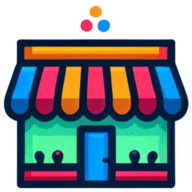What Are Challenges of Scaling Your Business?
Scaling a small business is fraught with challenges that can test even the most resilient entrepreneurs. To shed light on this critical journey, we've gathered insights from CEOs and Owners, who share their personal hurdles and solutions. From balancing goals with daily operations to navigating insurance and pricing strategies, here are four key lessons from those who've successfully scaled their businesses.
- Balance Goals with Daily Operations
- Invest in Team Training and Systems
- Optimize Production for Quality
- Navigate Insurance and Pricing Strategies
Balance Goals with Daily Operations
The key to scaling a small business is finding that elusive balance between lofty goals and day-to-day aims. It's extremely tempting to let daily tasks fall behind while you pursue bigger leads, and you might even be doing it subconsciously. I know how exciting it can be trying to land that large contract—rote office work will never warrant the same enthusiasm.
But neglecting existing clients or customers is a huge mistake, so temper your anticipation and come back down to earth. Stop daydreaming about how great it will be when you've hit a certain marker of growth, and instead, balance your dreams with a dose of gratitude.
This was a key mental practice for me when I was in the expansion phase, and I made an effort to incorporate thankfulness into my thought process regularly, even putting some reminders around my office. Keeping a humble attitude allowed me to grow while still providing excellent service to my current market.

Invest in Team Training and Systems
One significant challenge I faced while scaling Double Plus Marketing Agency was maintaining the quality of our services amidst rapid growth. As we took on more clients, the workload increased, and the risk of our standards slipping became very real. To overcome this, we invested heavily in training and developing our team, ensuring that every member could deliver the high level of service our clients had come to expect.
Another hurdle was systematizing our processes to handle a larger volume of work without losing the personal touch that set us apart as a boutique agency. We achieved this by implementing robust project management tools and developing clear communication protocols.
This ensured that as we grew, each client felt as though they were our only client, receiving the personalized attention and tailored strategies they deserved. It was a careful balance of using technology to streamline operations while preserving the human element of our client relationships.
Optimize Production for Quality
One of the biggest challenges we faced while scaling Cafely was maintaining the quality of our coffee blend as we expanded. You see, each batch of our coffee is meticulously crafted to deliver that unique Vietnamese flavor profile that our customers love. So, when demand started soaring and we had to increase production, we couldn't afford to compromise on quality.
To tackle this challenge, we invested a lot of time and resources into optimizing our production processes. We fine-tuned every step, from sourcing the beans to roasting and packaging, ensuring that each cup of Cafely coffee retained its exceptional taste and aroma. It was a tough journey, full of trial and error, but ultimately, it paid off. Today, I'm proud to say that no matter how much Cafely grows, our commitment to quality remains unwavering.

Navigate Insurance and Pricing Strategies
Scaling a femtech business like Kegelbell brought a slew of challenges, with one biggie being the insurance maze. Purchasing product liability insurance meant dealing with sky-high premiums for femtech devices and medical devices, and it was a real wallet-buster. So, we had to do some serious tinkering with our pricing strategy. It wasn't all smooth sailing, but we managed to tweak our prices to cover those hefty insurance bills without sacrificing the quality or accessibility of our products.
Dealing with big-name retailers added another layer of complexity. They often demanded insurance coverage worth a few million dollars, throwing our financial plans for a loop. So, a big retailer like Costco demands that you have product liability insurance for selling medical devices. And when it comes to medical devices, there's no room for cutting corners—safety and quality are non-negotiable. It may not be a concern for businesses with non-medical products, but for businesses and entrepreneurs who are building in this space, it adds a major financial concern. Compare $500 versus $15,000 as insurance costs. That's right—$500 is what it should cost as insurance to sell a similarly priced product.
Moreover, there aren't many insurance providers who cater to our niche, leaving little wiggle room for negotiation and pushing up those costs.
To tackle these hurdles, we teamed up with insurance whizzes who knew the ropes. Their savvy advice helped us shave off some expenses, although our insurance bills still remained higher than your average consumer product. But with careful price adjustments and expert guidance, we managed to clear this hurdle and keep on truckin' towards growth and success.



